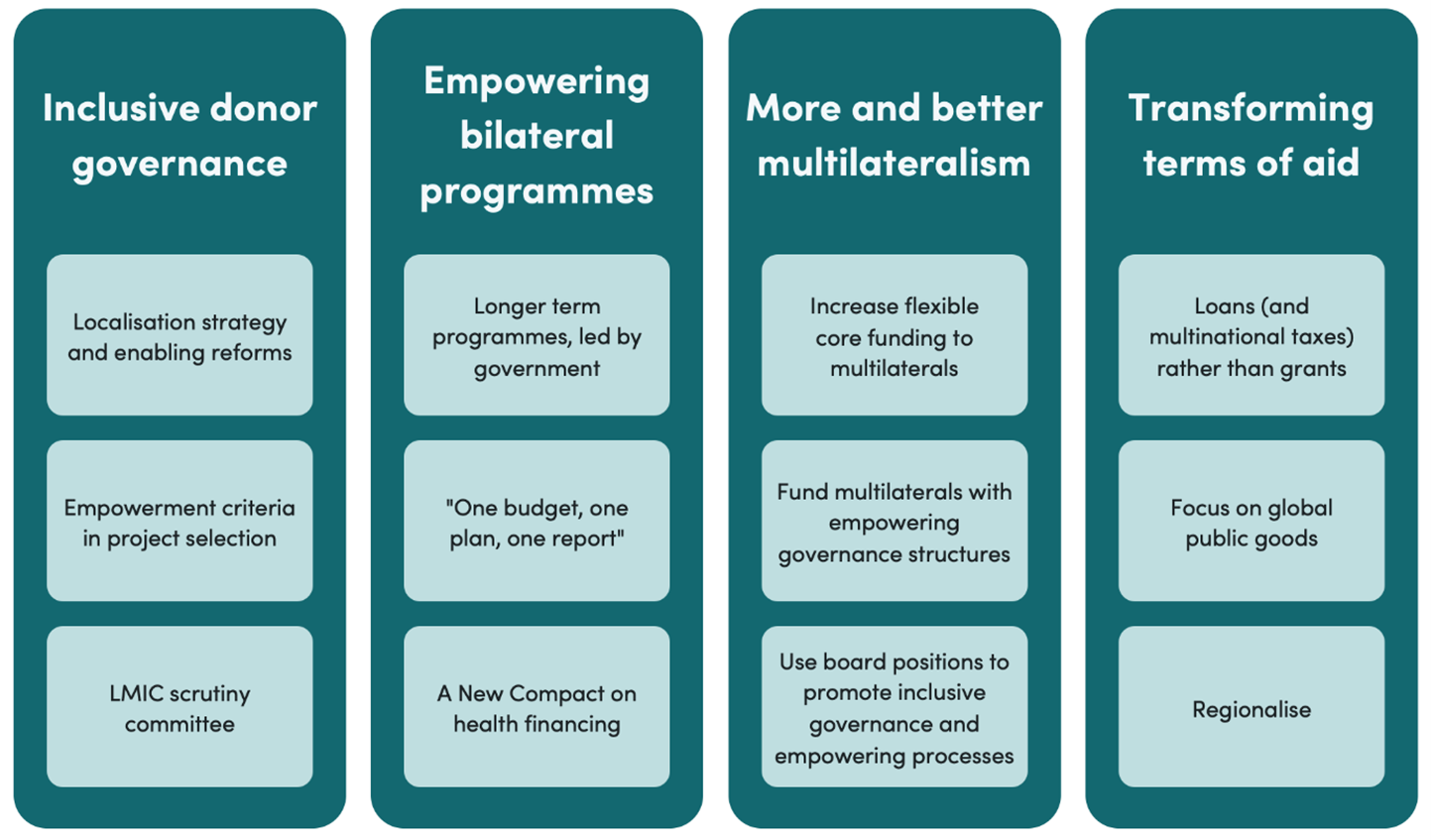May 07, 2010
This is a joint post with Wren Elhai and Molly Kinder.Senator Richard Lugar’s new opinion piece on Foreign Policy’s website lays out the case that a strong economic partnership with Pakistan is in U.S. national interests. Lugar argues that the recent failed bombing in Times Square and the subsequent arrest of Faisal Shahzad, a Pakistani-American who had received bomb-making training in Pakistan’s volatile FATA region, is only a further reminder of how critical cooperation between the U.S. and Pakistan remains.What I like most about the Lugar article is his emphasis not only on giving aid to Pakistan but on giving aid well. With colleagues, I take some satisfaction that three of his points echo arguments made in our first open letter to Richard Holbrooke (Special Representative for Afghanistan and Pakistan) back in March. The three are: transparency to Pakistanis as well as Americans about where U.S. aid is going and for what; defining and tracking with the Government of Pakistan a limited set of agreed development goals for the next five years (e.g. more girls finishing school, fewer brown-outs, increased tax revenue collection); and on investing in irreversible long-term solutions over a “gusher of money” to win “hearts and minds.” (See the CGD Study Group on a U.S. Development Strategy in Pakistan site for more about this.)Lugar explains that the U.S. aid program in Pakistan –which he spearheaded in Congress—is intended to do just that. The hard part, he says, is making the partnership work and getting the aid program right.On greater transparency in the U.S. aid program Lugar writes: For more on aid to Pakistan, visit the website of the CGD Study Group on U.S. Development Strategy in Pakistan and subscribe to our newsletter.Here’s Senator Lugar on setting clear objectives and goals:
For more on aid to Pakistan, visit the website of the CGD Study Group on U.S. Development Strategy in Pakistan and subscribe to our newsletter.Here’s Senator Lugar on setting clear objectives and goals:
“While important progress has been made, I am concerned that more must be done on both sides to establish transparent and responsive mechanisms to implement U.S. economic and security assistance.”Our open letter said:
“Emphasize transparency of the U.S. program, including by sharing more complete and timely information about program plans, commitments and actual disbursements than we have seen up to now. The study group members discussed the benefits of transparency to counter the widespread mistrust and misinformation about U.S. practices, and to engage Pakistani civil society in monitoring their governments’ and their NGOs’ use of funds.”One specific idea I shared for how to do this:
“USAID could create a public website, for example, providing ongoing and detailed reporting on the plans, commitments, and disbursements of U.S. aid resources. The Millennium Challenge Corporation can be looked to as a model for public sharing of information. The Administration’s Recovery.gov website, which tracks stimulus funds, is another possible model.”
 For more on aid to Pakistan, visit the website of the CGD Study Group on U.S. Development Strategy in Pakistan and subscribe to our newsletter.
For more on aid to Pakistan, visit the website of the CGD Study Group on U.S. Development Strategy in Pakistan and subscribe to our newsletter.“ Anti-Americanism runs deep in Pakistan. If we are to break the cycle of high hopes and disappointments that has characterized the relationship, we, with our Pakistani partners, must set goals that are clear and achievable… I encourage Pakistan's leaders to use the promise of the Enhanced Partnership Act to unite the government and the country around a set of national objectives and to push for principled compromises on contentious issues so that all sides can go forward together. This will require hard and sustained effort, but without it, Congress and the American people are unlikely to maintain their support for continued in-depth engagement.”And in our open letter:
“Define with the Government of Pakistan a limited set of key development indicators for the next five years and hoped-for annual progress against them. Output indicators of Pakistan’s development program might include tube wells restored or brown-outs reduced and increases in tax revenues. Outcome indicators might include jobs created or saved, children vaccinated, and girls entering secondary school. The indicators should be measurable and verifiable and progress against them made fully to Pakistani civil society groups, to the U.S. public and lawmakers, and to other major donors in Pakistan.”Finally, Lugar warns against short-term thinking, of spending too much too quickly.
We need to beef up our consulates and improve our capacity to implement sustainable, consequential projects. Predictably, the embassy is under pressure -- from both sides -- to show quick results. But expecting a sudden gusher of money is both unrealistic and unwise, for it would undercut the long-term development aims of the legislation.And from our open letter:
Clarify the priority the United States puts on the long-term challenge for the government and the people of Pakistan, namely a capable and responsive state and a prosperous and just society—rather than on the short-term U.S. objective of winning hearts and minds….Absent clarity about the United States’ long-term objective, on which U.S. and Pakistani objectives clearly coincide, U.S. assistance could actually worsen public opinion toward the United States—if Pakistanis perceive aid as a means to bully or bribe their own government or as contributing to shoring up illegitimate political or other elites.As the co-sponsor of the Kerry-Lugar-Berman legislation, which authorized the $7.5 billion in aid to Pakistan, Senator Lugar has already done his share of the heavy lifting on securing the how much of our aid to Pakistan. It is heartening to see that he and his staff are equally committed to getting the how right as well.
Disclaimer
CGD blog posts reflect the views of the authors, drawing on prior research and experience in their areas of expertise. CGD is a nonpartisan, independent organization and does not take institutional positions.





